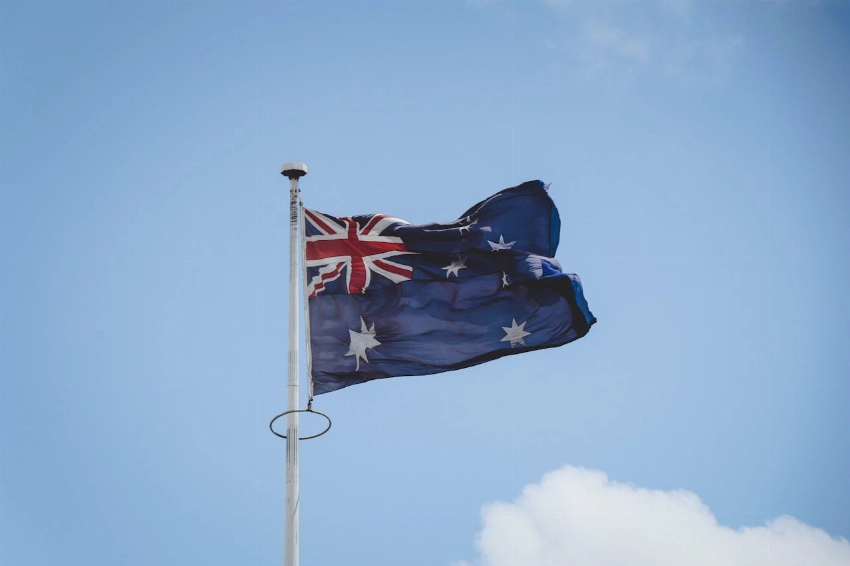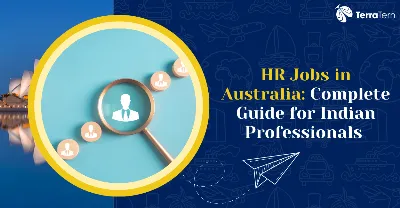Key Highlights
- What Are the Current HR Job Opportunities in Australia for 2025?
- Which Industries Are Hiring HR Professionals?
- What Are the Top HR Roles in Australia in 2025?
- How Much Do HR Jobs in Australia Pay Indian Professionals in 2025?
- Which Skills Assessment Bodies Handle HR Qualifications in Australia 2025?
- What English Language Requirements for HR Jobs in Australia Apply?
- How Does the Sydney HR Job Market Compare to Melbourne?
- What Are The Main Problems That Indian HR Professionals Already Face in Australia?
- How Is Technology Transforming HR Jobs in Australia 2025?
- What Are The Learning & Development Opportunities for HR Professionals in Australia 2025?
- What Are the Pathways to Senior HR Leadership Roles?
- Conclusion
The Australian HR job market is full of potential HR jobs in Australia for Indian professionals in 2025, with thriving demand across technology, healthcare, finance, and retail. The average salary for open HR jobs in Australia is currently $94,528, 0% lower than the national average salary for all jobs, which is $94,223. Fun facts for HR jobs in Australia: The largest category under which open HR jobs in Australia are listed is HR & Recruitment Jobs, followed by Other/General Jobs.
The market demonstrates a 1.8% monthly increase in HR recruitment, with policies on infrastructure and digital transformation being the main drivers behind this growth. Critical routes include employer sponsorship under 482/186, skills assessment, and professional accreditation with AHRI. Top hiring cities are Sydney CBD (AU$135,039), Perth (AU$134,999), and Melbourne CBD (AU$131,335). Let’s look into the big question of how to get a job in HR in Australia.
What Are the Current HR Job Opportunities in Australia for 2025?

When we are asking the question - How to get a job in HR Australia? One should know that a new era of opportunity –HR jobs in Australia now. In the current climate, Australia’s recruitment market for HR professionals is being shaped by global economic change and a growing emphasis on workforce strategy. According to a recent Robert Half report, “Although unemployment for many human resources positions is low, the market remains competitive for top talent.
In the same vein, research by VeiraMal shows phenomenal expansion forecasted in the HR management sector for Australia, projected at a compound annual growth rate (CAGR) of 17% from 2025 to 2030. This has been driven by companies reorganising, training, and incorporating new technologies such as AI. Let’s know more about HR jobs in Australia!
-
Growing HR Job Market: Company growth (53%) and new projects (47%) are driving the demand for HR professionals. With a focus on talent acquisition and retention, companies are hiring for both new and vacant roles.
-
AI and Digital Transformation: AI is moving from a "wow" to a "how" phase, with companies focusing on practical implementation. This is creating new roles and demand for professionals who can work with AI-driven tools.
-
Upskilling Priorities: HR leaders in 2025 have upskilling and reskilling as their top priority. This means more demand for learning and development specialists and talent management experts.
-
Restructuring Patterns: With the changing labour market, employers are now focusing on getting the most out of their existing teams rather than just new hires. This requires expertise in workforce planning, organisational design, and change management.
Which Industries Are Hiring HR Professionals?
Navigating the job market means understanding which industries are driving the most demand for HR jobs in Australia. Here are the top industries hiring HR professionals, each with its own needs and challenges. Let’s know more about HR jobs in Australia!
-
Technology: The tech sector's growth and innovation require HR professionals who can manage agile teams, scale fast, and implement tech-savvy recruitment strategies. High demand for HR business partners and talent acquisition specialists.
-
Healthcare: With many new entrants and a big workforce needed, the healthcare and social assistance sector is a top hirer of HR professionals. Roles often focus on employee relations, compliance, and managing a diverse range of staff from nurses to admin personnel.
-
Finance: The finance sector is undergoing digital transformation and needs HR professionals who can manage organisational change, talent retention, and performance management in a highly regulated environment.
-
Retail: The retail sector is focused on employee engagement and high turnover rates. HR jobs in Australia here often involve training, development, and improving the employee experience.
Also Read: Temporary Skill Shortage Visa Australia (TSS): Updated
What Are the Top HR Roles in Australia in 2025?

As the HR jobs in Australia landscape evolves, certain roles are becoming more critical to business success. Professionals with experience in these areas will have a competitive advantage in the Australian job market. Let’s know more about HR jobs in Australia!
-
HR Business Partner: These strategic roles are in high demand as companies want to align HR functions directly to business objectives. They act as a consultant to management on HR matters.
-
Talent Acquisition Specialist: As talent attraction continues to be a focus, these specialists are key to building recruitment pipelines and employer branding.
-
Employee Relations Manager: This role is becoming more important as companies are prioritising resolving disputes and creating a positive workplace culture to improve retention.
-
Payroll Coordinator: A core HR job in Australia in demand across all industries, responsible for accurate and timely pay.
-
AI HR Roles: New roles in HR analytics and AI implementation are emerging, requiring data analysis and HRIS skills.
How Much Do HR Jobs in Australia Pay Indian Professionals in 2025?

Salary is a big consideration for any professional looking to move abroad. The HR jobs in Australia market offers good pay with clear progression based on experience, location, and specialisation. These figures are indicative but a good starting point for salary expectations and negotiation.
What is The Entry-Level HR Salary in Australia?
As an international professional entering the HR jobs in Australia salary market, you need to understand the typical compensation structure. The starting salaries are strong and offer clear progression. Let’s know more about HR jobs in Australia's salary!
-
The average total remuneration for an entry-level HR officer with less than 1 year of experience is AU$58,994.
-
With 1-4 years of experience, the average total remuneration for an HR Officer is AU$68,176.
-
The salary is influenced by location, industry, and company size.
How do Senior HR Salaries Compare Across Major Cities?
Senior HR salaries in Australia reflect the cost of living and the concentration of major industries in the major cities. Here is a breakdown of average salaries for senior HR jobs in Australia salary professionals in major cities.
|
City |
Average Senior HR Salary (AU$) |
Cost of Living Index |
Primary Industries |
|
Sydney CBD |
135,039 |
100 (Base) |
Finance, Tech, Media |
|
Perth |
134,999 |
85 |
Mining, Energy, Tech |
|
Melbourne CBD |
131,335 |
90 |
Retail, Finance, Tech |
|
Canberra |
117,500 |
80 |
Public Sector, Government |
|
Brisbane |
90,000 |
75 |
Construction, Education |
Yeah, so, here’s the thing—Sydney and Melbourne, sure, they chuck out the fattest pay cheques, but wow, your wallet might be crying after your rent, brunches, and, like…basic groceries. If you’re about the “live comfortably” life, maybe don’t sleep on places like Brisbane or Perth. Your salary might look smaller on paper, but life’s a lot less expensive, so you actually get to enjoy your cash.
Now, HR jobs in Australia for Indian, is it a walk in the park? Not really. It’s a whole process. You’ve got to plan smart, know the hoops you’re jumping through, and stay organised. First off, gear yourself up for a skills assessment. That’s your golden ticket. After that, it’s all about the whole visa and job hunt grind. Let’s know more about HR jobs in Australia for Indians:
On the topic of visas, yeah, kinda unavoidable—there are a few legit options:
-
Subclass 482 (Temporary Skill Shortage): Basically, you find an Aussie company that loves your stuff, and they sponsor you to work there for up to four years. You’ll need a skills assessment and, duh, a sponsor. Nothing’s free.
-
Subclass 186 (Employer Nomination Scheme): Here’s the jackpot, a permanent gig. Two ways in: either coming in with a temp visa already or applying straight from overseas. If you want to stick around for good, this is kind of the holy grail.
-
Subclass 494 (Skilled Employer Sponsored Regional): Not into city madness? This one’s for folks working in regional Australia. It’s provisional at first (read: trial run), but if you play your cards right, you can bag a permanent visa after three years.
It’s a lot, honestly, but hey, Aussies are big on skilled workers. Just have to jump through the right hoops. Good luck! Don’t forget sunscreen.
Which Skills Assessment Bodies Handle HR Qualifications in Australia 2025?

Alright, let’s break it down. HR jobs in Australia aren’t just a walk in the park, especially if you’re gunning for a skilled work visa. First up: skills assessment. You pretty much have to do it; there's no way around that. Two big names here: AHRI and VETASSESS. Let’s know more about HR jobs in Australia!
Here’s the scoop:
-
AHRI’s basically the HR big boss in Australia. Employers dig their certification. If they say your skills and shiny certificates fit Aussie standards, you’re in decent shape.
-
VETASSESS covers a ton of jobs—including the Human Resource Adviser role (yep, that’s ANZSCO 223111 if you’re keeping tabs). The pathway you take kind of hinges on what degree you’ve got and how many years you’ve been grinding in HR.
What’s The Non-Negotiable Stuff To Land an HR Spot in Oz?
Honestly, you need to tick the boxes for qualifications, work history, and yep, decent English. Aussie bosses and the Home Affairs crew check if you fit their preferred mould.
Now, do you have to have an Australian piece of paper for HR jobs in Australia? Not necessarily. Sure, it helps (employers love local), but if you studied elsewhere, don’t freak out. As long as VETASSESS or AHRI says your overseas diploma or whatever matches Aussie standards, you’re good. They’ll size up your qualifications and decide if you’re up to scratch with the local version—AQF is what they call it.
If your degree’s not quite up to par, you might need a “bridging course”. Think of it as an educational pit stop. Basically, these are short programmes or training sessions that help you get across the finish line so your experience and credentials actually count.
So yeah, it’s a bit of paperwork and maybe some extra study, but nothing wild if you’re serious about scoring those HR jobs in Australia down under.
Also Read: Exploring HR Jobs in Germany: Latest Guide
What English Language Requirements for HR Jobs in Australia Apply?
English ability is an obligatory condition for both visas and work requirements. The minimum requirement for a visa is typically established by the Department of Home Affairs, but employers set their own bars.
-
IELTS/PTE Score Requirement: The majority of skilled visas require a minimum of 6.0 in each band for IELTS or an equivalent score for PTE.
-
Workplace Communications: In addition to the visa, Australian workplaces are known for their emphasis on clear communication skills, both written and verbal. Proficiency in business English is the key to workplace success.
What Are The Best Australian Cities For an HR Career?
Picking the best city is as much a career decision as it is a lifestyle choice. The country’s most populous areas are home to unique benefits for human resources professionals due in part to their economic mix and industry specialisation.
How Does the Sydney HR Job Market Compare to Melbourne?
When the question is asked how to get a job in HR Australia, one should know that these are Australia’s two biggest cities and economic powerhouses, so they’re where you’ll almost certainly find the widest range of HR jobs in Australia.
-
Sydney: Sydney’s HR market is dominated by the finance and technology sectors. They also tend to have the highest salaries in Australia, but are also up against some of the country’s most expensive living costs. The HR jobs in Australia market is fast-paced, with strategic HR roles such as HR business partner and talent acquisition.
-
Melbourne: With its reputation as a cultural mecca, Melbourne’s HR market is varied, featuring strong retail, healthcare, and finance opportunities. The pay is lower than in Sydney, but it’s not as expensive to live. The market prizes HR professionals who are passionate about employee engagement and culture.
Are Regional Areas Viable for HR Career Development?
Moving to regional areas can be a smart decision for Indian professionals, and here’s why Indians looking at careers in Australia may consider moving to regions, as they will have their own set of advantages and visa pathways.
-
Regional Sponsorship: The Subclass 494 visa offers a permanent pathway for skilled workers to live and work in regional Australia.
-
Quality of Life: Country residents usually have a better work-life balance, enjoy cheaper living expenses, and experience greater community cohesion.
-
Career Restrictions: There are opportunities; however, the HR jobs in Australia are much more constrained than it is in larger cities.
What Are The Main Problems That Indian HR Professionals Already Face in Australia?

The move to a new country and work environment can be intense. Indian HR professionals might face similar kinds of challenges with cultural assimilation, professional recognition, and networking.
How Do Australian Workplace Cultures Differ from India?
The Australian working environment is different from the Indian in terms of communication style and hierarchy system.
- Communication: In Australia, the informal, open, and direct form of communication tends to be preferred. Hierarchy matters less, and professionals are expected to speak up.
- Work-life Balance: The concept of work-life balance is considered very important in Australia. It is a very basic thing about working culture -- so many decent work hours and taking annual leave.
What Are Common Interview Challenges for International Candidates?
Indian job seekers may find themselves in for a new experience when it comes to the interview process in Australia. This time, the technique is all about getting the hang of the subtleties.
- Behavioural Questions: Australian interviews are also quite fond of behavioural questions – a lot of practice in the STAR methodology to gauge performance and competency in the past.
- Cultural Fit: Companies care a lot about "cultural fit" -- how well your personality and values match theirs.
Also Read: Jobs in Australia for Indians: Salary, Visa & Documents
How Is Technology Transforming HR Jobs in Australia 2025?

Technology is not just a tool for HR professionals; it is a force reshaping the very nature of their work. From recruitment to employee engagement, technology is creating new opportunities and demanding new skills.
Which HR Technologies Should Professionals Master?
In order to stay ahead in the Australian market, it is essential for HR professionals to be up-to-date with current HR technology.
-
HRIS Systems: Knowledge of the leading Human Resources Information Systems (HRIS), such as SAP SuccessFactors, Workday, and BambooHR, is a plus. These systems automate everything from payroll to performance reviews.
-
Applicant tracking (ATS) and Recruitment Automation: Fluency in ATS platforms, as well as recruitment automation tools, is a must-have skill for talent acquisition specialists.
-
Analytics Platforms: The tech ability to collect data and use it to make informed HR decisions is a growing must-have. Data-savvy HR pros can add real value to the business and become strategic advisers.
How Is AI Changing HR Recruitment Processes?
Machine learning approaches are increasingly taking over the mundane activities in recruiting, freeing up HR professionals to be more strategic and human behaviour-focused.
- Automated Screening: Tools powered by artificial intelligence are capable of sifting through resumes and social media profiles to match the best-suited applicants from thousands.
- Bias Mitigation: AI can help minimise bias in who is hired by putting more emphasis on skills and qualifications instead of personal traits.
What Are The Learning & Development Opportunities for HR Professionals in Australia 2025?
Lifelong learning and self-development are very important for career progression in Australia. Associating with professional bodies and getting certifications can bring opportunities.
How Does AHRI Membership Benefit International Professionals?
The Australian Human Resources Institute (AHRI) is Australia's national association for human resources and people management. Set yourself apart as a member of AHRI. Joining our 20,000-strong community of HR professionals means you have access to the best expertise in HR.
-
Professional Acceptance – AHRI membership is recognised throughout Australia as a symbol of professionalism in human resource management.
-
Networking - Members will benefit from a large network of HR individuals, which is accessible through different events such as conferences or online communities.
-
CEUs / PDHs – AHRI provides numerous resources to further your professional growth, such as courses, workshops and publications.
What Are the Pathways to Senior HR Leadership Roles?
The career progression in HR is well-defined. The path from a coordinator to a director requires a combination of experience, specialisation, and leadership skills.
-
From Coordinator to Advisor: Gaining experience in various HR functions, from recruitment to payroll, is the first step.
-
From Advisor to Business Partner: This transition requires developing a deeper understanding of business strategy and how HR can contribute to organisational goals.
-
From Business Partner to Director: This is the leadership pinnacle, requiring a proven track record of strategic impact, change management, and team leadership.
Conclusion
HR jobs in Australia market presents substantial opportunities for Indian professionals in 2025, with strong salary prospects ranging from AU$58,994 for entry-level positions to AU$162,277 for senior roles across major cities. The 1.8% monthly growth in HR recruitment, driven by digital transformation and infrastructure investments, creates diverse pathways through employer sponsorship visas and skills recognition programmes.
Success requires strategic visa planning through Subclass 482 or 186 pathways, AHRI professional certification, and adaptation to Australia's collaborative workplace culture, emphasising flexibility and continuous learning. Technology integration, particularly AI adoption in recruitment processes, demands upskilling in HRIS systems and data analytics to remain competitive in this evolving market.
By strategically navigating these avenues, Indian professionals can secure a rewarding and prosperous career in Australia's vibrant HR sector. Visit TerraTern to know more!






